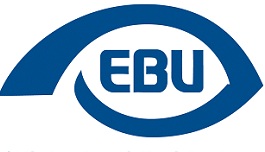 EU proposals on accessibility of public websites for blind and partially-sighted people are "too little, too late", according to the European Blind Union.
EU proposals on accessibility of public websites for blind and partially-sighted people are "too little, too late", according to the European Blind Union.
On 3 December the European Commission published a legislative proposal on the accessibility of public websites. According to the EBU, it had promised legislative action for years, and the proposal was the Commission's first attempt at delivering on that commitment. It was meant to "...make sure that public sector websites (and websites providing basic services to citizens) are fully accessible by 2015", as set out in the European Commission's Digital Agenda for Europe.
As more and more services are delivered online, inaccessible websites continue to jeopardise access to public services for those who use assistive technology (AT) to access the internet. According to the European Commission's own research, less than 5% of public websites are accessible to blind and partially sighted people. However, says the EBU, that need not be the case; it is perfectly possible to make websites fully accessible to all by sticking to some simple rules and applying international web accessibility standards when designing websites.
Blind and partially sighted people are disproportionately affected by the inaccessibility of websites and the European Blind Union has long campaigned for all websites to be accessible. In 2011 the EBU spearheaded a campaign calling for comprehensive legislation with a wide scope, including all online public services provided by local, regional and national authorities, as well as basic services to citizens, network services (eg postal services, energy, transport, water), financial services (e.g. banking services) and the like.
The current proposal leaves the vast majority of public services out of the equation. There is no mandatory requirement to ensure the accessibility of websites delivering essential services and information about, among other things, schools, transport, banking, or housing.
EBU president Wolfgang Angermann said: "This is a missed opportunity. We wanted equal access to all public websites and websites delivering basic services to citizens. This proposal is simply not going to deliver the radical change that is needed.
"Drastic action is needed to ensure that people with sight loss are no longer treated as second class citizens. This is too little too late - we are now calling on Members of the European Parliament to work with us to ensure that the right to access information set out in the United Nations Convention on the Rights of Persons with Disabilities is finally upheld."
The statement by the EBU went on to say: "The European Union and member states have a legal and a moral obligation to ensure that all citizens are given equal access to information: a right enshrined in the United Nations Convention on the Rights of Persons with Disabilities. The European Blind Union wants an end to the on-going discrimination that prevents blind and partially sighted people from accessing information that most citizens take for granted."